Play(er) of the Week: Evan Diaz ’25 Talks 100 Hits, Baseball Family, and Success On and Off the Field
In Play(er) of the Week, our goal is to highlight outstanding athletes or moments from games that deserve extra attention.
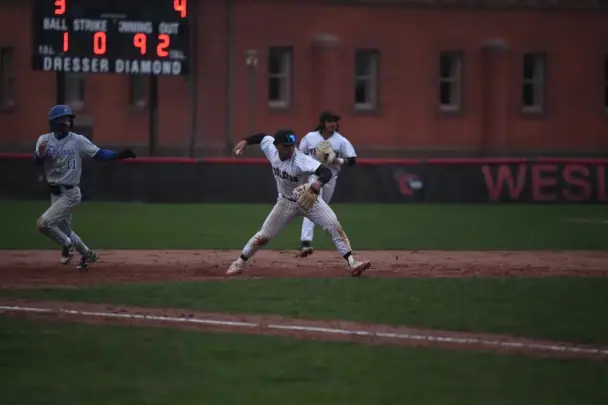
Evan Diaz ’25 is an economics major from Yonkers, N.Y. Diaz plays third base for the Wesleyan baseball team and helped lead them to three appearances in the NESCAC Championship tournament in his first three years as a Cardinal. Diaz became an everyday starter his sophomore year and has been the picture of consistency since then, racking up two seasons with a .300+ batting average and coming into his senior year with 78 hits looking to join the 100-hit club.
Since Wesleyan baseball started in 1865, only 55 players have amassed 100 hits over their careers at Wesleyan; with a seventh inning single against Ramapo College of New Jersey on April 9, Diaz became the 56th. The Argus sat down with Diaz to talk about his accomplishment and the years of baseball leading up to it.
The Argus: When did you first start playing baseball?
Evan Diaz: Around four years old, my parents put me and my twin brother [Ethan Diaz ’25] in a little league back home in the Bronx, N.Y. And from then on, it’s been nonstop baseball for every summer, every fall––whenever it’s warm, whenever we had a chance to get out there and play. Our dad was always our coach growing up, so we always were practicing after school and spending summers just playing baseball.
A: Do you have any early baseball memories that stand out as a time when you really fell in love with the game?
ED: Back in the little league that I played in, we’d have big championship games at night on a Saturday against our rivals, or something like that. And the seats would be filled with people, so even at that young age, there were high-stakes baseball games that me and my brothers and my dad would all be a part of. Those are the most memorable experiences for me, and increase my love for the game.
A: What kind of influence did your brothers and dad have on your competitiveness and drive to play?
ED: My dad has always been in our corner as a coach and as a parent, but in terms of…the baseball field, he’s always tried to push me and my brother to do our best and also try to do extra. After school, he’d pick us up, and then we’d just go to the baseball field near our house, and he’d work with us and try to get us better and get us into shape. [He’d] have us exercise a lot, run and lift, just so he could challenge us and see how far we wanted to take it. He’s also seen things in us before we saw them, and always supported us in the highest way. So he’s definitely the main reason why I’m playing baseball at this level.
A: You had a very unique recruiting experience because you were recruited during COVID-19 and went to the same school as your twin brother. Can you talk me through your recruiting experience and why you chose Wes?
ED: It was definitely a unique experience to try and figure out where you wanted to spend such important years of your life during a time where you weren’t really able to visit schools and college coaches weren’t able to meet with you in person or come to games. So what we tried to do is look for schools that were [more] academic, because we were great students in high school. And also try to find the school that we could play baseball at together in a competitive conference. Wesleyan ended up being one of the schools that fit that description. So we were lucky enough to come here and play together.
A: What was it like playing with your brother at the college level?
ED: He was here for three years with me, and that was obviously a great experience. And he got to play baseball at this level, which was an amazing experience for me [and] for our parents to watch. We have an older brother as well who played baseball at Cornell––so, big baseball family.
A: Were there any specific upperclassmen who showed you how to succeed as a college athlete?
ED: I really enjoyed the senior class that was here my freshman year. They were always the most welcoming and supportive of us freshmen in academics and athletics. If I were to name a few, I guess Adam Geibel [’22]: He would teach me the way I should carry myself at practice and in the field. Kai Marcos [’22] is another one. He was a senior that took me and Ethan under his wing and taught us not just about baseball, but about what comes after this. [He] and another senior, Liam Rohan [’22], helped us out a lot in terms of what we could do outside of school and how we could expand our careers, network with people, and learn more about life after baseball. And I guess another one for baseball is Kyle Sylvester [’22 MA ’23]. He was a great motivator for me and helped teach me a lot about how to play the infield, and he showed me what it meant to have drive and want it at such a high level.
A: How have you seen your leadership style evolve over your time at Wes as you’ve taken on a bigger role on the team?
ED: I’m not usually the kind of guy who wants to be a dominating voice in most scenarios. I feel like it’s more genuine and authentic to try and get to know people and build a camaraderie and friendship with each individual on the team so they feel comfortable…when you do want to speak to them about what’s going on on the field. I learned that from some of the seniors that were here in my freshman year. They weren’t automatically captains who spoke out and had the dominant voice, but they made me feel welcome, just because of the fact that they would have conversations with me about anything that was going on in my life, and I didn’t need to hear them speaking in the huddles for me to have the utmost respect for them. So I take pride in my ability to make everybody feel welcomed and [add] some sort of positivity to their everyday life on the field.
A: You came into this season with the 100-hit mark on the horizon. As you crept closer, passing 85 and 90 hits, did you start thinking about it, or were you just focused on performing well and winning games?
ED: Before and after the games, I would think about it. But once I’m in the game, I’m just trying to be laser-focused to help the team win by playing well and trying my best to get hits and get on base as often as possible. I knew eventually that I would reach that milestone if I just continued with my process and continued trusting myself. Against Ramapo, I knew going into the game that I needed two hits. So when I got the first one, it was definitely more on the front of my mind than in other games. I ended up getting [the 100th hit], so it was relieving that I didn’t have to think about it anymore, and that I could enjoy, in the end, reaching that milestone.
A: Standing on first base just after getting that 100th hit, how did it feel knowing you had left your mark on Wesleyan baseball?
ED: It was definitely a culmination of all the work that I’ve put in here at Wesleyan and before. I wanted to have something tangible, something that I could really be proud of for my parents and for my family members back home. So having that as an achievement was something that I wanted, [so that] when I would look back on my four years here, I [would have] etched my name in the record book. And Wesleyan has a vast history. A lot of players have played here. So you want to stay humble and realize that I’m just another player here. But at the same time, reaching that milestone is something that should be of significance for me and my family. So I do want to give myself a little pat on the back for being able to accomplish something for such a historic program like Wesleyan baseball. That’s all I can ask for.
A: Finally, if you could go back and give your freshman self a piece of advice about how to succeed in college baseball or life, what would it be?
ED: One of the things I would tell myself is to always stay true to myself—to believe in myself. Throughout the course of four years, at times it’s going to be hard…academically and athletically and socially. So I think one thing I would advise my younger self is to just stay the course [and] trust that everything will be alright and that things will fall where they may. In baseball, I would advise myself to understand that there’s more to life outside of this. We tend to correlate our athletic performance with our sense of self-worth or identity because our careers have been so intertwined with athletics, and I’d just make sure to understand that we’re more than athletes. We have lives and careers that we want to pursue after this. We have friends that care about us, regardless of how good we do on the field or how good our performances are [in] the classroom. So just making sure that we put things into perspective, appreciate things for what they are, and continue to learn, regardless of if we’re failing or succeeding.
This article has been edited for length and clarity.
Ethan Lee can be reached at ejlee@wesleyan.edu.

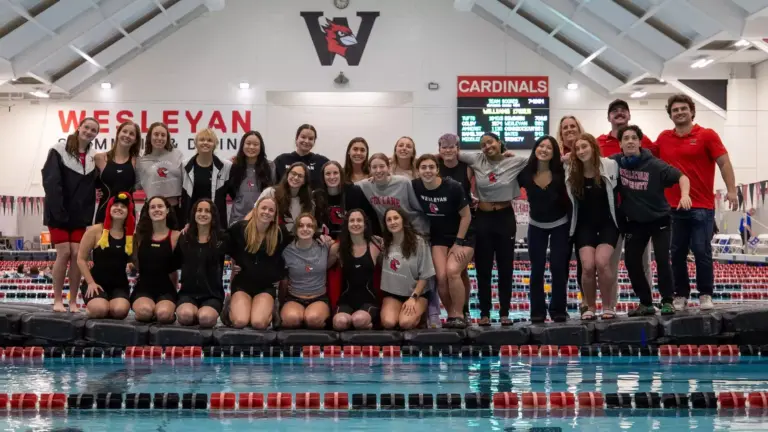
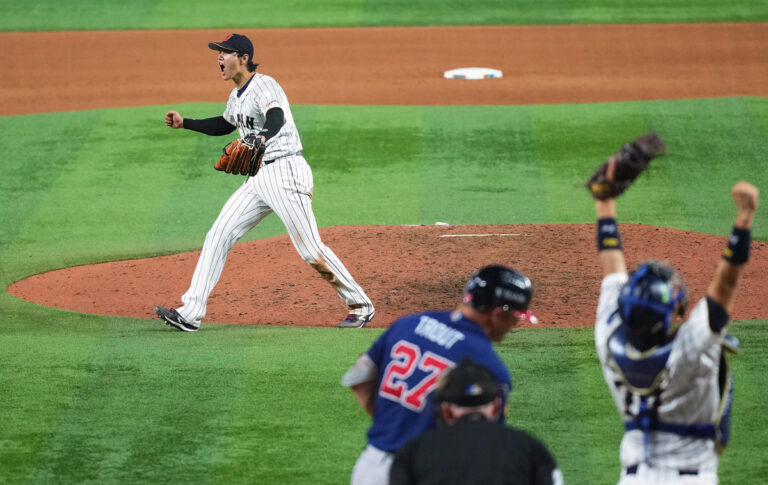
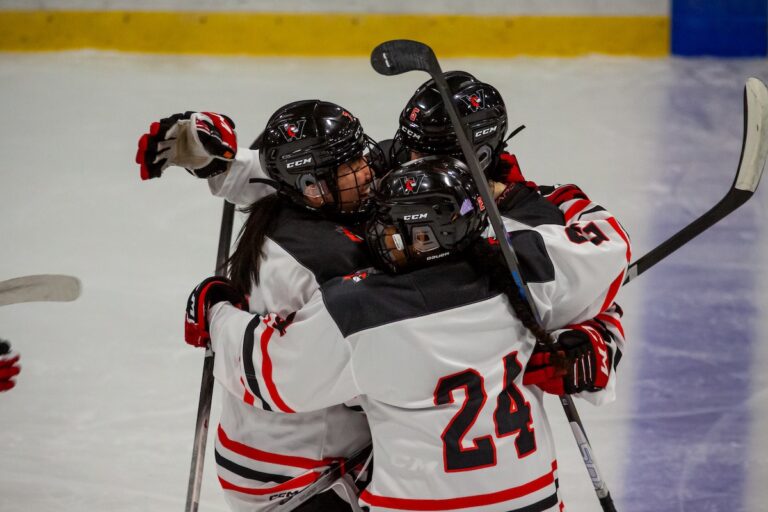
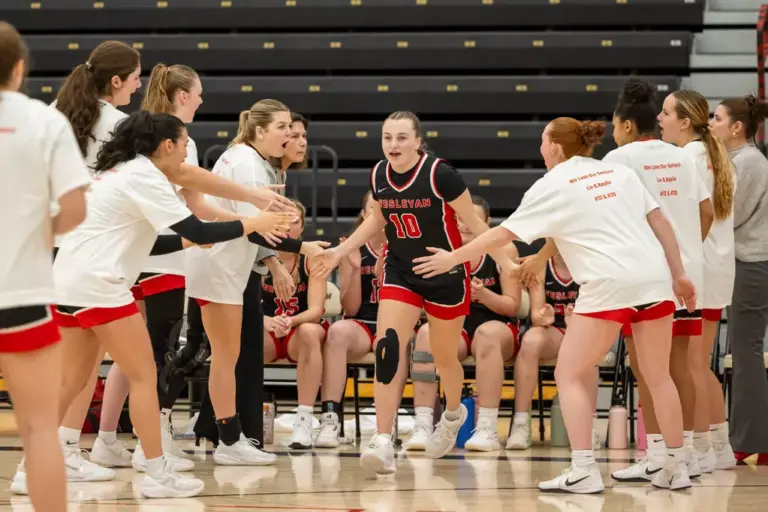
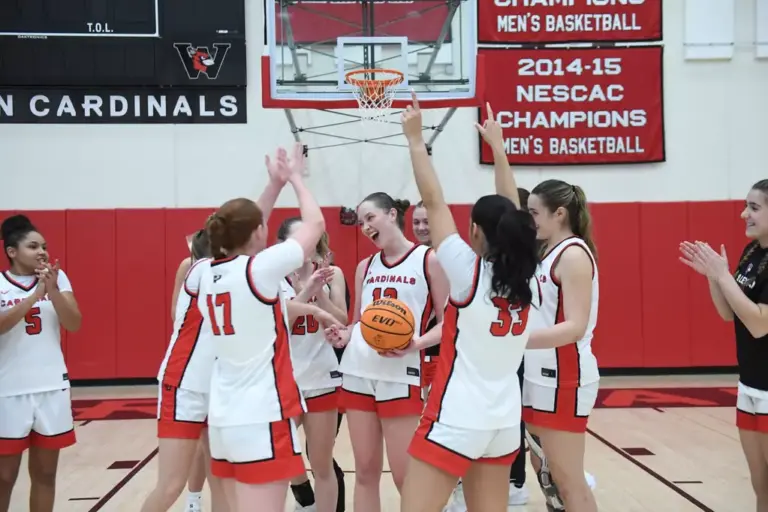
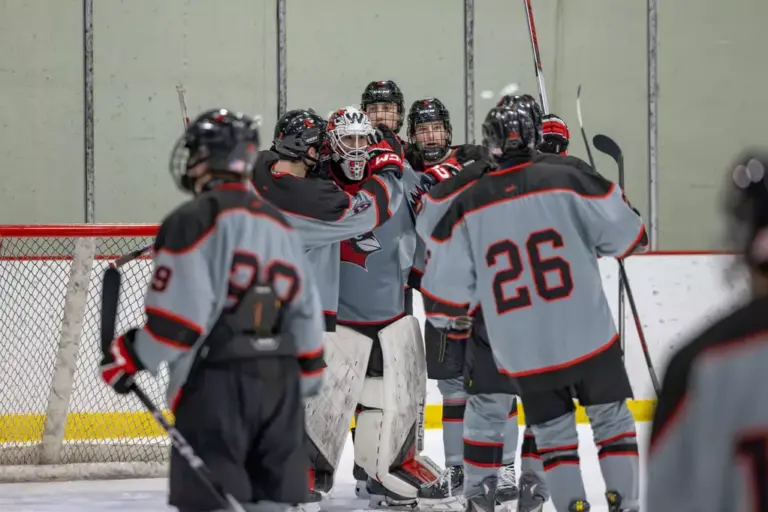
Leave a Reply